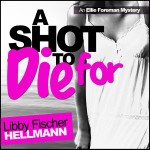As many of you know, thanks to the digital revolution I have now released all my novels as audiobooks. ACX.com deserves special mention, because it was through their exchange that I was able to audition and choose narrators who are consummate professionals.
And that’s the key. If you take this story-telling business seriously, you need to be professional, and that includes the audio versions of your books. It’s far more difficult than you think to voice your own book, and I don’t recommend it. If you want the best storytelling possible, you need a professional. Part artist, part technician, a good narrator is a magician. They can add a dimension of drama, emotion, and conflict you never thought possible. And give your work a polished sound. They did for me.
Given that, I’d like to introduce you to two of the best narrators I’ve heard. And what better way to meet them than to hear excerpts of their work?
 First up is Robin Rowan, reading the prologue from TOXICITY. (Click on the title then the green button beside the word “sample.”) I love Robin’s voice and the way she captures the text and makes it come alive. She’s absolutely perfect for Georgia Davis and my darker stories.
First up is Robin Rowan, reading the prologue from TOXICITY. (Click on the title then the green button beside the word “sample.”) I love Robin’s voice and the way she captures the text and makes it come alive. She’s absolutely perfect for Georgia Davis and my darker stories.
Next Mary Conway, whose crystal clear voice is melodious and charming, reads from A SHOT TO DIE FOR. She’s perfect for the Ellie books, and the one cozy novella I recorded.
And now here they are, in the flesh, so to speak.
1. Why did you decide to become an audio book narrator?
ROBIN: I have always loved the storytelling aspect of audio books, and truth be told, have been trying to break into the field for about 20 years.My break came in 2009, with a series of mysteries by best-selling author Elizabeth Lowell. Oh, and I majored in storytelling at the University of Wisconsin (it was the Seventies!). Actually I was a speech major with an emphasis in the oral interpretation of literature– aka, storytelling.
MARY: I have been a working actor for most of my life but when I became a Mother, life on stage (and on the road) no longer fit my lifestyle. As a narrator, I love that am able to use my acting skills and keep a flexible work schedule that allows me to spend time with my family.
2. What skills does a narrator need?
ROBIN: Your listeners must believe what you are telling them, so a very fluent, conversational style, no matter if you are reading a novel, a biography, or a do-it-yourself book is critical. You’ve also got to have s-t-a-m-i-n-a. Try reading out loud for an hour. How does your voice sound? Is your throat scratchy? Yeah. Audio book narrators swear by many different remedies to keep them going—“throat coat” tea with honey and lemon, Binaca drops, Blistex lip balm, green apples, there are as many ideas as narrators! Can you listen to your voice for 10 hours? Think about someone else listening to that voice. Also, narrators have to totally immerse themselves in the story. I remember a beautiful moment when I recording “An Image of Death” for Libby—it was getting SO intense and I just kept going and suddenly realized I’d been reading for 6 hours without a break—very unusual, but such a GOOD story!
MARY: It’s a lot more than just having a good voice, that’s for sure. You also need to be a good story teller and interpret the author’s tone and intention. Different types of books require a different style “read”. For fiction, you need to master accents and different character voices. In fact, I often do research into the places where stories take place, the regional dialects and cultural differences. It’s really a lot like preparing for a role on the stage, only you get to play every single part! You need technical chops as well. In the last few years the industry has embraced the independent narrator as producer, which has empowered us to find a lot more work, but also creates pressure to learn audio engineering.
3. What equipment do you use, and how did you learn how to edit?
ROBIN: My studio is the 8 x 4 walk-in closet of my home, complete with lots of clothes on the wall that faces the street—a perfect sound barrier. I have several 2’ x 4’ sound barrier panels on the other walls and the ceiling, thick carpeting, and a louvered door for a little bit of air (there is no vent in there—too noisy!). I use Adobe Audition CS5.5 recording software along with a beautiful Symetrix 528E voice processor, a tiny mixing board I bought at the Guitar Center, and a wonderful Electro-Voice RE27 ND microphone, which “floats” on a microphone boom that is permanently affixed to the table. I still use a big desktop computer, while many others have now gone the laptop route. Having the big computer feels more like a “studio” to me.
When I started out in radio in the Seventies, editing consisted of splicing reel-to-reel tape with a razor blade and taping it back together. We have come a long way. Learning how to edit is on-the-job training. Unless you’re a New York or L.A. union talent with a separate director, separate editor, and a client listening in to your session (meaning you touch nothing, not even the microphone!), you’re a one-person company, so you have to learn how to do. everything. The hardest part isn’t highlighting and then deleting your obvious mistakes, but actually listening to yourself talk with a very critical ear. I ask myself, “Can I do it better?” I always say “yes,” and if time would permit, I’d give everything a second, third or even fourth take.
MARY: Two words-“baby steps.” I started out with a $99 USB Snowball Microphone and free Audacity software and worked my way up the learning curve, adding better equipment a little bit at a time. Now I have a shiny new Macbook, with a much fancier microphone and I can proudly cruise my way around Pro Tools. I am constantly upgrading my recording space as well.
Editing is really two skill sets. There is the computer part where you have to learn the software technique and all the shortcuts, and I am still learning. It can takes years to discover all there is to learn in ProTools. But to be a good editor you also need to have an “ear” for it and a natural instinct for timing, which is something I have always been pretty good at and is probably why I became an actor.
4. What are your favorite genres to read/record? Why?
Of the books I’ve done so far, mysteries are my favorites, since there’s always something to move the plot along and usually a big surprise or plot twist at the end. That said, I’ve just delved into a series of 5 fantasy books which I’ve never tried before, and am having a blast. I love doing characters; I consider that a great challenge. For the four Elizabeth Lowell books, I read British, Chinese, Southern American, Australian, Russian and Lithuanian characters. I can do British and am okay with Southern, but Chinese? It was hard, but I’ve learned to find not only someone on YouTube speaking English with a Chinese (or whatever) accent, but to find someone doing an impersonation of someone with a Chinese accent. It is exaggerated, and so easier to pick out how the words are accented.
MARY: Definitely fiction, and I prefer contemporary stories, mysteries, thrillers, and “chick lit”. On my own time I love classic and historical novels, but for narrating I do best with things that suit my voice and my personality, which tends to be colorful and outgoing. I enjoy humorous and witty characters with a touch of sarcasm, and I love to read snappy fast paced dialogue. I enjoy some non-fiction as it affords me the opportunity to learn about new things. Reading really does make you smart, which is something I am always barking at my kids. But it’s true! So I hope they are reading this…
5. You have 30 seconds to tell the world why they should listen to audiobooks.
ROBIN: Some you’ll love, and some you won’t be able to get through. You have to connect with the narrator, and the narrator with you. If they can’t draw you in during the first 5 minutes, you probably won’t enjoy the book. Find a good storyteller, and you’ll be hooked for life!
MARY: We live in a crazy, fast-paced, hyper-busy society and Audiobooks give us the gift of multi-tasking! My friends are always complaining that they don’t have time to sit down and read a book. With audiobooks you can listen in the car, on the train, at the gym, while doing dishes, or folding laundry.
Thanks, ladies, for allowing us to peek behind the curtain. You are both terrifically professional. And readers, to find out more about Robin Rowan click here. Mary Conway can be found here.
What do you like about audiobooks?